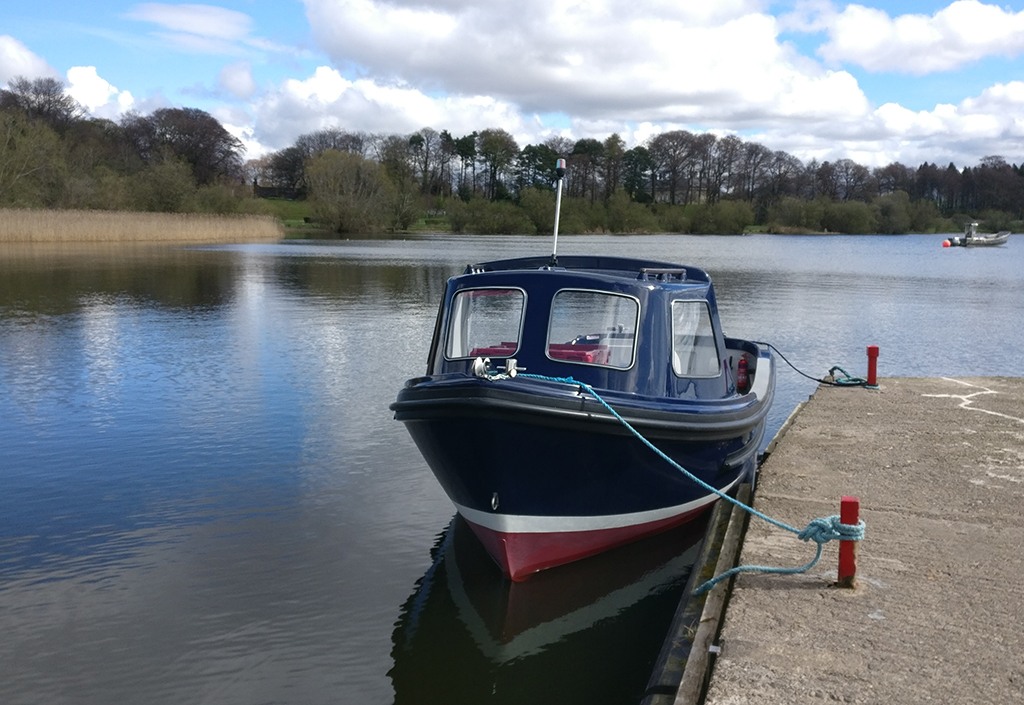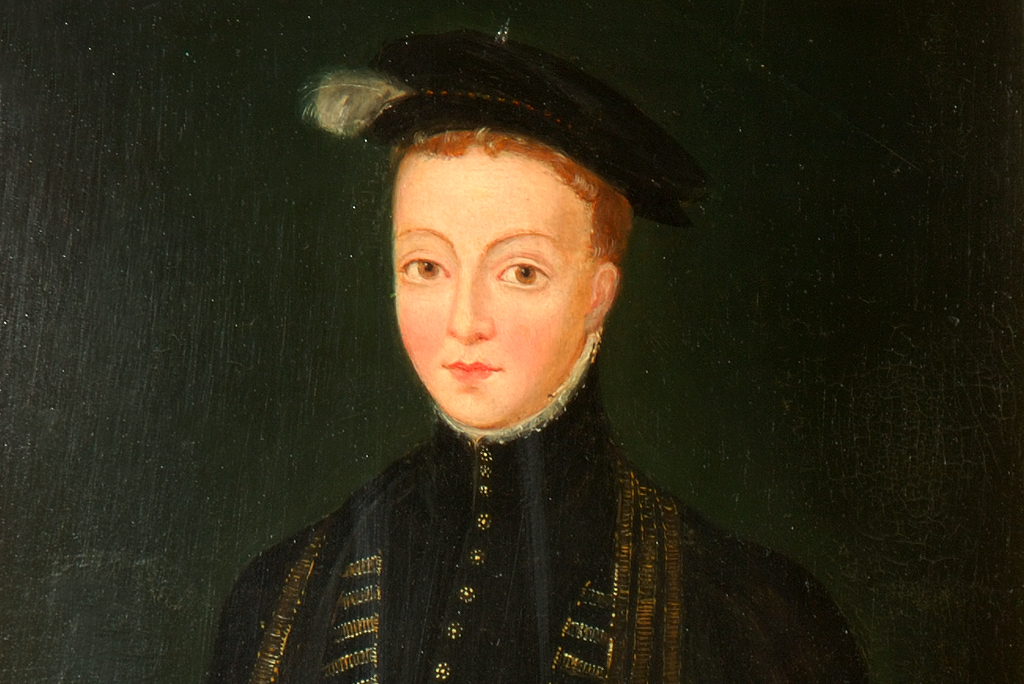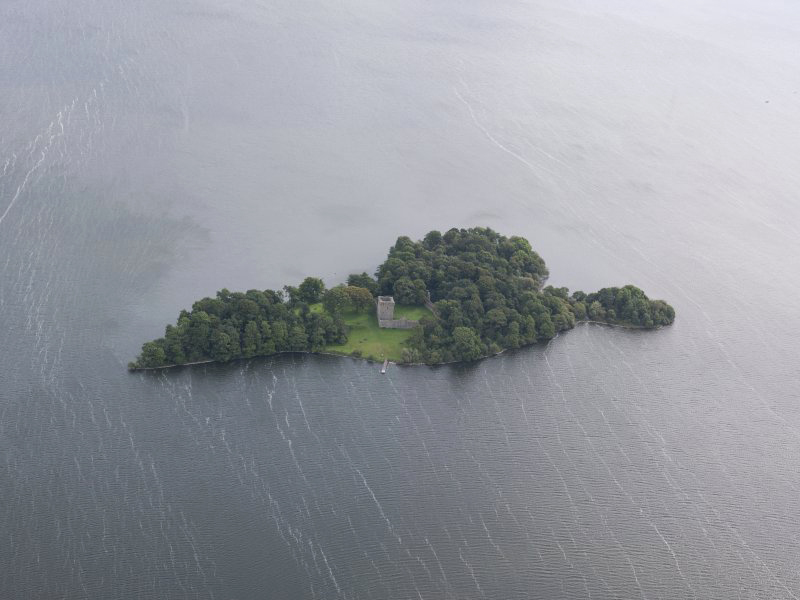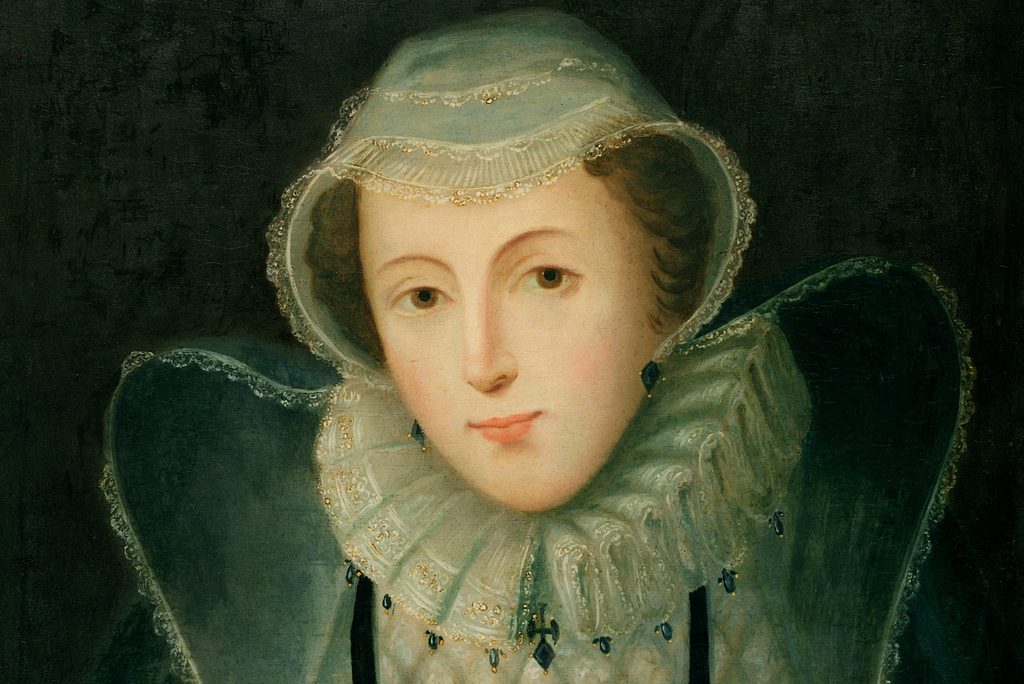If you’ve ever taken the boat trip to Lochleven Castle and back, you’ll know what an enjoyable voyage it can be. The sun is up, the birds are wheeling, a gentle breeze slaps water against the boat’s hull and the castle nestles serenely on its wooded island …
Now imagine how it feels to be Mary, deposed Queen of Scots, on the night of 2 May 1568. How much more exhilarating would this boat trip be if you were escaping Lochleven for a taste of freedom after nearly a year of captivity?

A boat waiting to sail across Loch Leven (not the original!)
What a year it’s been
Less than 12 months ago, you tied the knot with James Hepburn, Earl of Bothwell, your third husband. He had been a stalwart ally, but was also a braggart and hellraiser, much given to posturing and brawls.
Bothwell was said to have wooed you by abduction – you, the reigning Queen of Scots! Even more damagingly, perhaps, he was heavily implicated in the murder of his predecessor, Darnley, just 15 months ago.

Henry, Lord Darnley
A louche, power-hungry poseur, Henry Darnley was nonetheless your husband – the nominal King of Scots. An ugly assassination involving explosives and strangulation was no petty crime.
You had married him in haste, less than three years ago, driven by a heady blend of sexual attraction and political expediency.
But that unseemly haste was nothing compared to the Bothwell marriage, three months after Darnley’s violent demise. A frantic month followed, as Bothwell revealed his true roguish colours, and acted the part of the new king. His rivals – now known as the Confederate Lords – had had enough.
Culmination at Carberry
It came to a head 11 months ago at Carberry Hill, near Musselburgh. At this confrontation between the Lords’ army and your own, no gun was fired, no sword thrust, no blood spilled. Yet the course of Scottish history was changed. Bothwell scarpered, via Orkney to Scandinavia. You would never see him again.
You gave yourself up and tasted for the first time the bitterness of imprisonment. That first night, 15 June, you were led through the streets of Edinburgh, a captive in your own realm, your own capital city, spat upon and harassed and threatened with death.
You were held at the townhouse of your ally Sir Simon Preston, where the City Chambers will one day stand. That night your subjects witnessed you at the windows, distressed, dishevelled and dispossessed.
You were pregnant – a pregnant queen! But perhaps you didn’t know it yet.
Captive Queen
The next day, your captors removed you from the public gaze, beyond the reach of your loyal supporters, north to the island stronghold of Lochleven, near Kinross. And there you were left, on a tiny island with little on it beside the castle of your jailer, Sir William Douglas.

Aerial view of Lochleven Castle, from Canmore
You fell ill. You always fall ill at times of stress. Your limbs swelled and your skin developed pustules. And then, last July, you suffered a miscarriage. You had been carrying Bothwell’s twins.
Just days later, you were visited by Patrick, Lord Lindsay, a representative of the Confederate Lords. He ordered you to abdicate the throne, allowing your infant son James to become king. Your half-brother James would then become regent, governing Scotland on behalf of his nephew.
You resisted as much as you were able, but in the end, Lindsay threatened you with death. Miserably, you signed the papers. You were queen no more.
Island Life
So for the past few months, you have lived in this island castle, recuperating, practising needlework, playing cards, exploring the little garden … but above all, brooding and plotting your escape.
You have made allies on the island, most precious among them George Douglas, younger brother of Sir William. You have flirted with him, enjoying the attention; gaining his trust and loyalty.
A few weeks ago, on 25 March, you felt strong enough to attempt escape. You disguised yourself as a washerwoman, boarded a boat and almost, almost got away. But your pale queen’s hands gave you away, and you were brought back to the hateful island.
This time, your Douglas friends have pulled it off. A 16-year-old page, Little Willie Douglas, has stolen a key and released you. With the household distracted by May Day celebrations, you have switched clothes with your companion, Mary Seton, covering your face.

Little Willie Douglas has stolen a key…
Speed Bonnie Boat
Little Willie has brought you to this rowing boat and – in a stroke of cunning – stoved in the hulls of all the other boats moored at the island.
So here you are, skimming across the loch toward the shore you could only gaze at for the past 11 months.
You listen intently as the oars dip quietly in and out of the water. At every moment, you expect the cry going up when Sir William discovers your escape; then the roars of rage as he finds his boats have been holed. After that, perhaps, a rain of shots and arrows, even swimming pursuers.

Will there be a rain of arrows?
What lies ahead? Hope. Bruised, fearful hope, bolstered by pride and a keen sense of injustice. You know there are still loyal subjects out there, and your confidence is growing with each stroke of the oars.
As you reach the shore, you are relieved to find faithful George Douglas waiting for you with fresh horses and a small band of supporters. You climb unsteadily into the saddle, enjoying your first taste of freedom in nearly a year.
Now, or soon, you will be Queen of Scots again…
Mary’s fateful story unfolds in our next blog.

